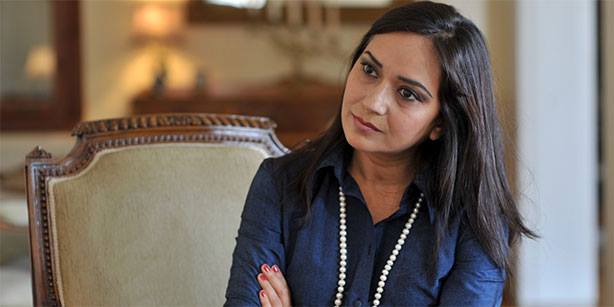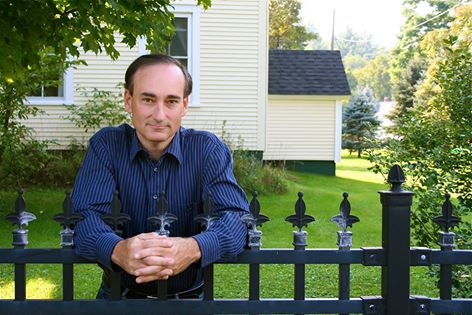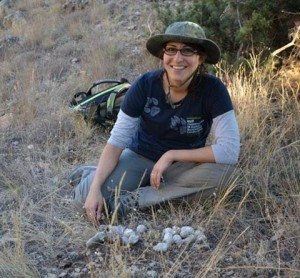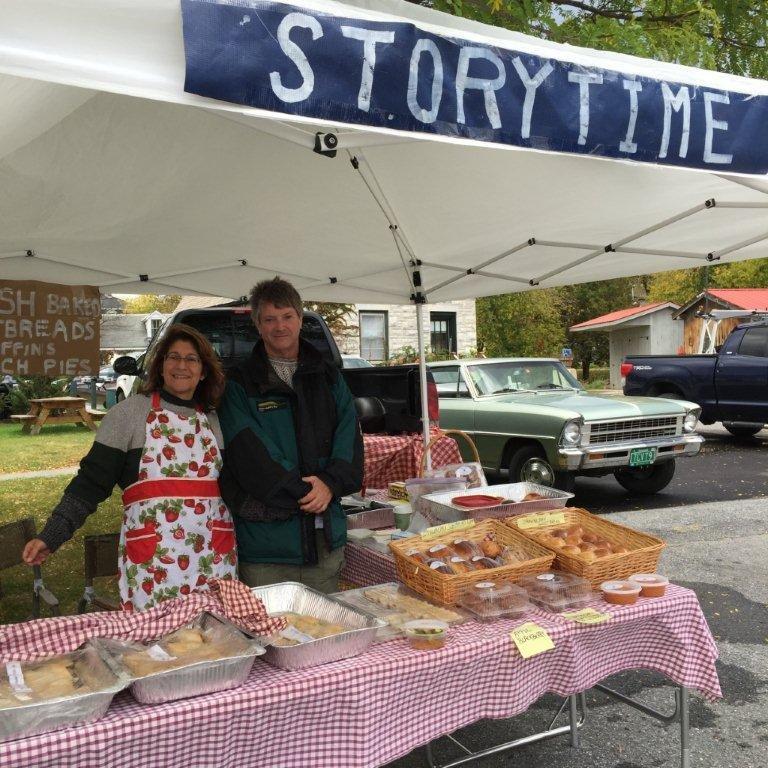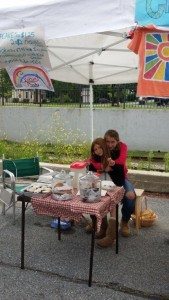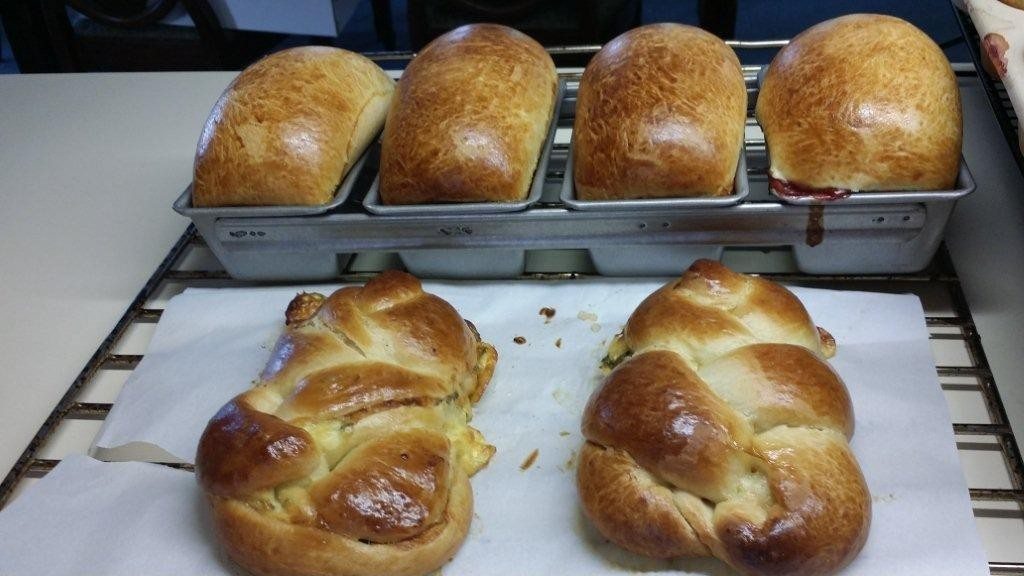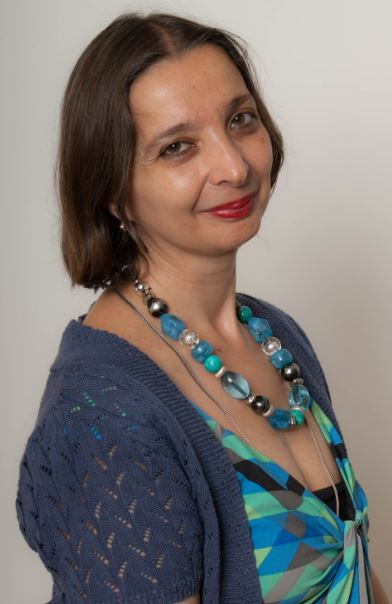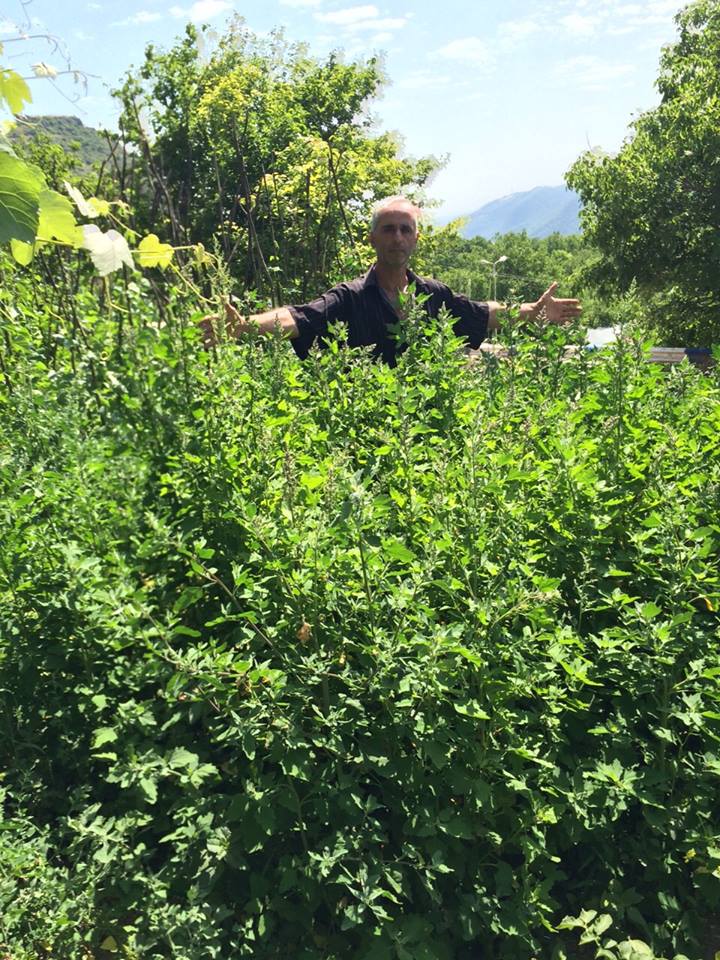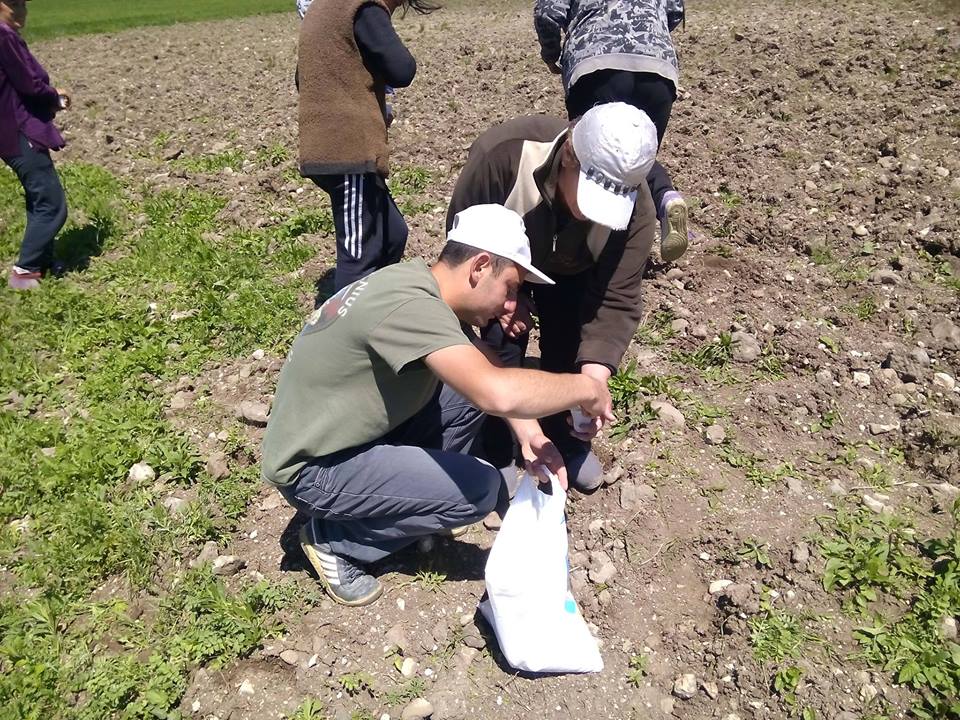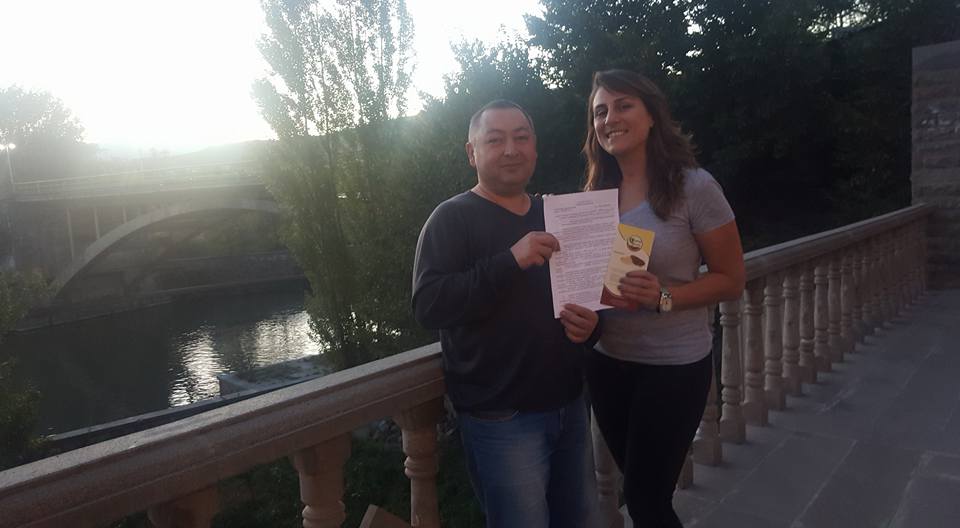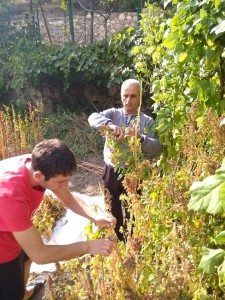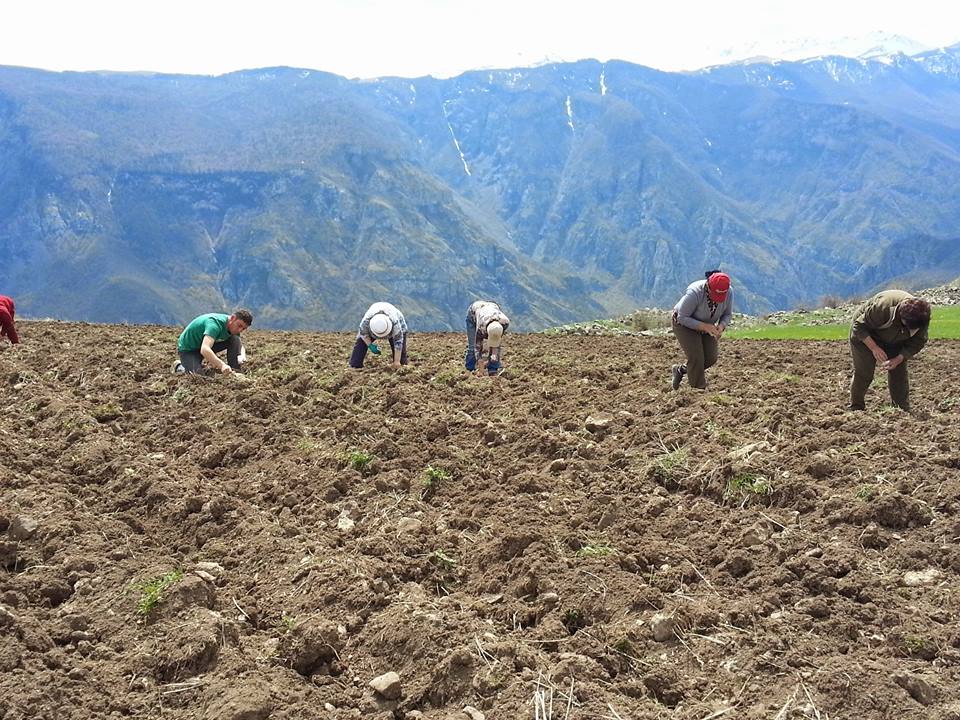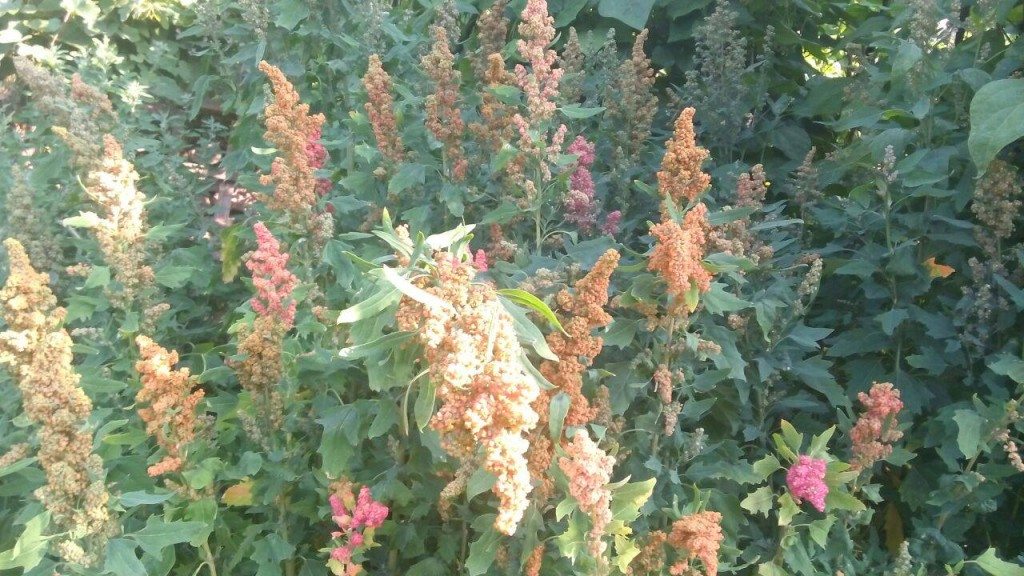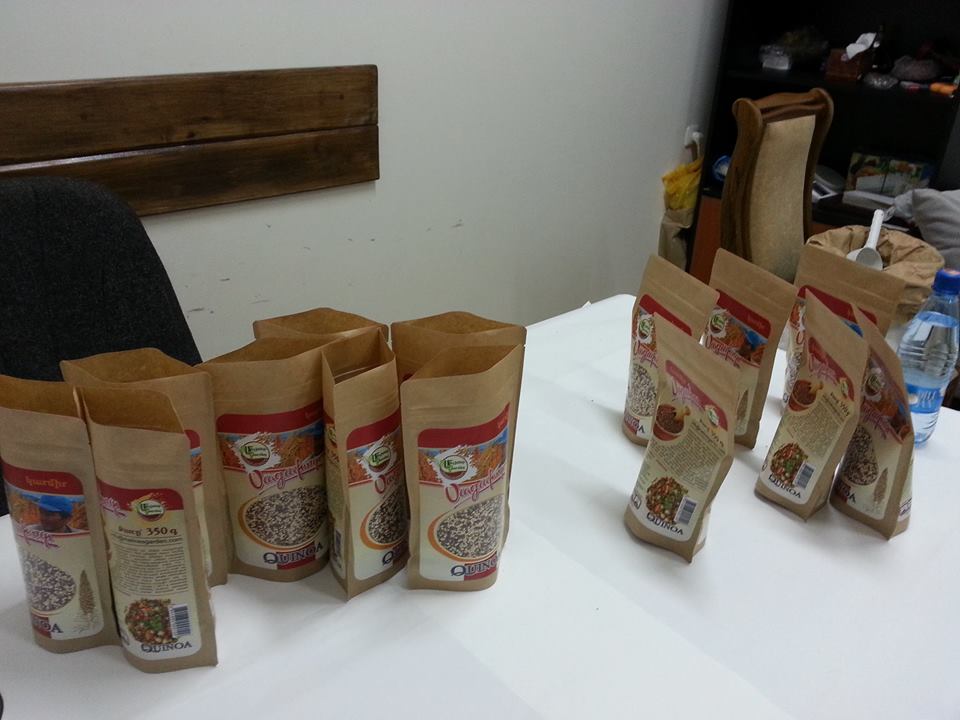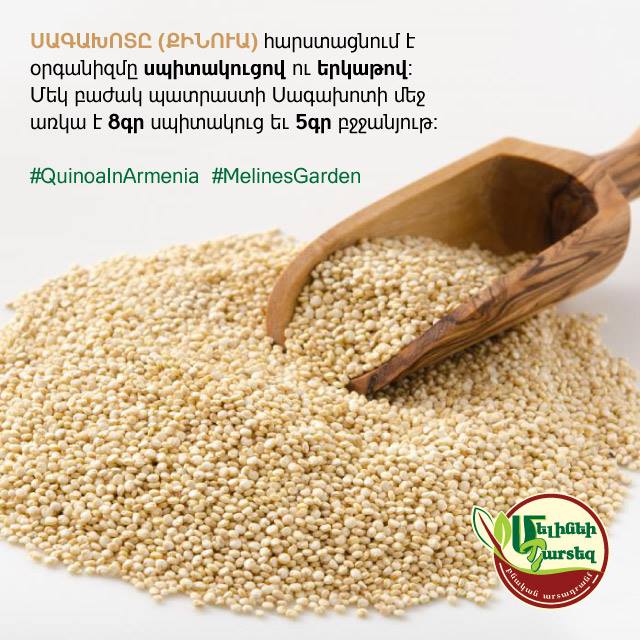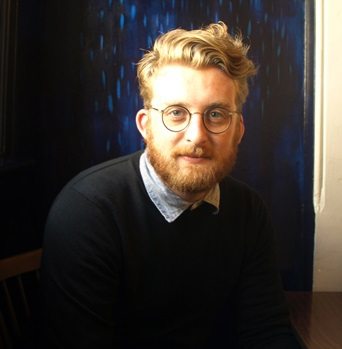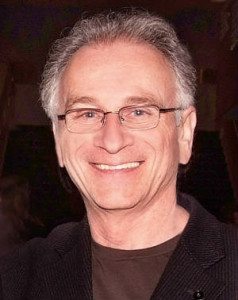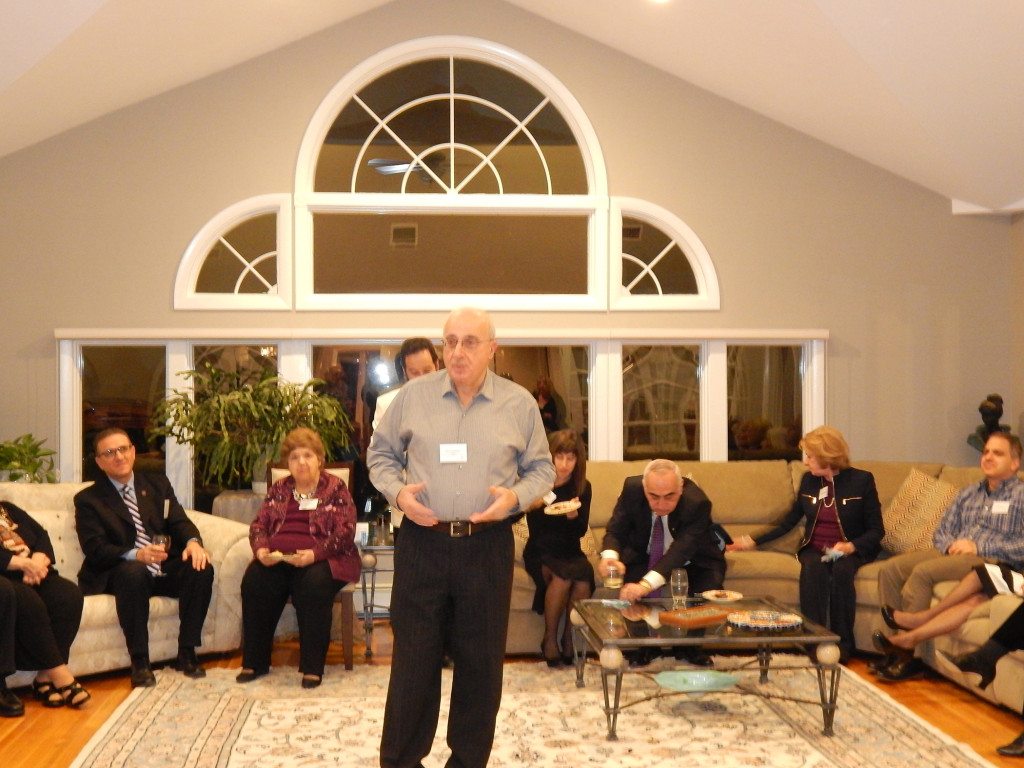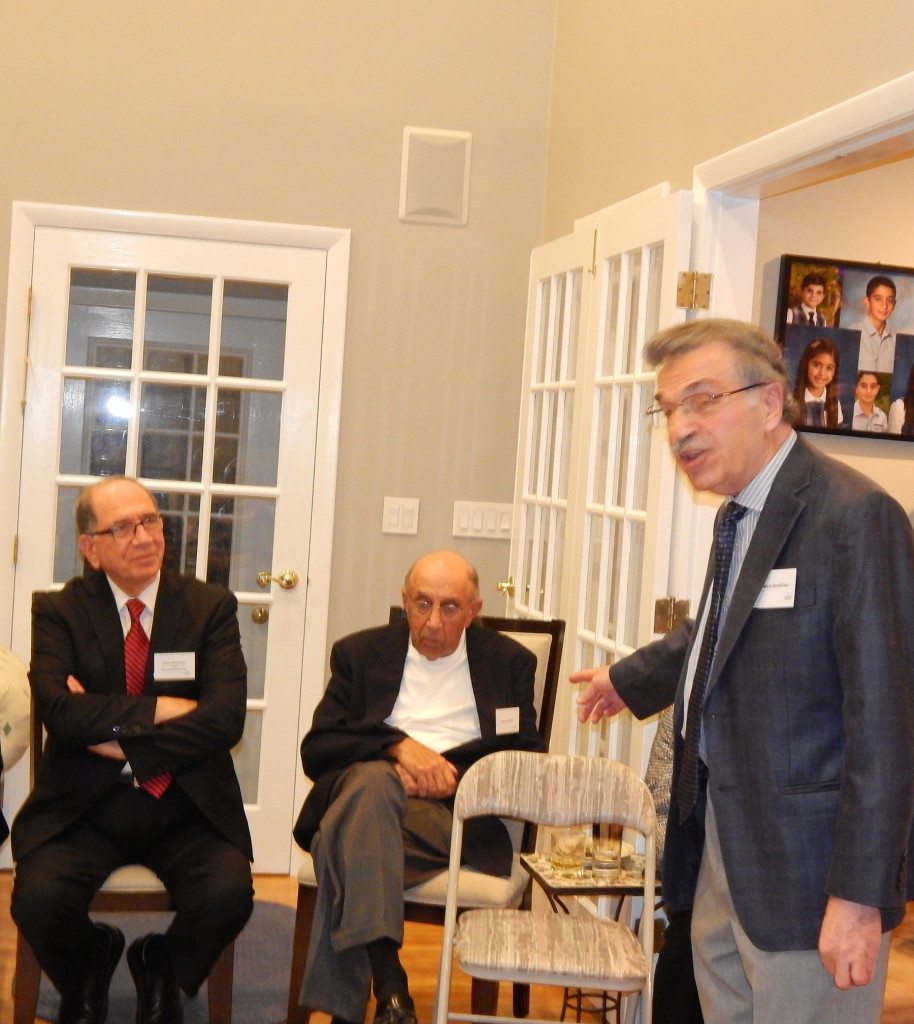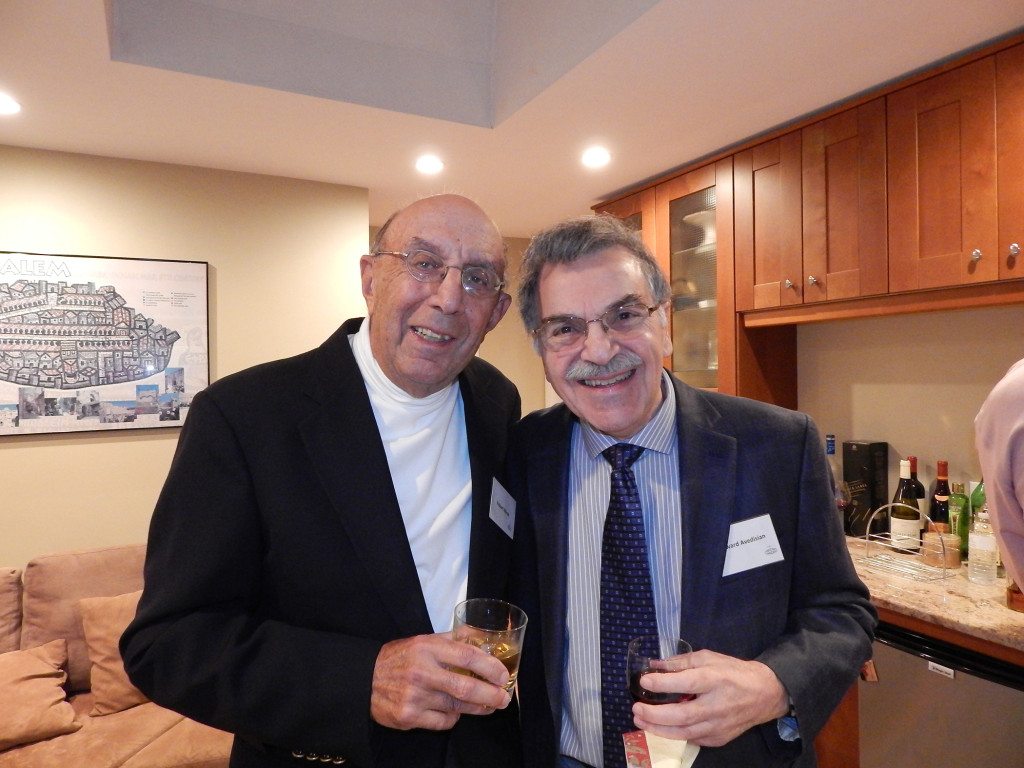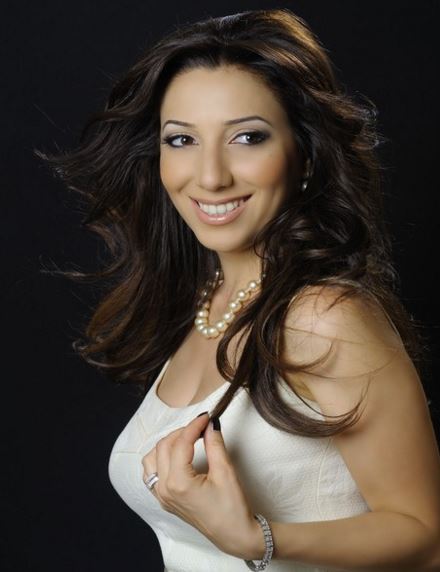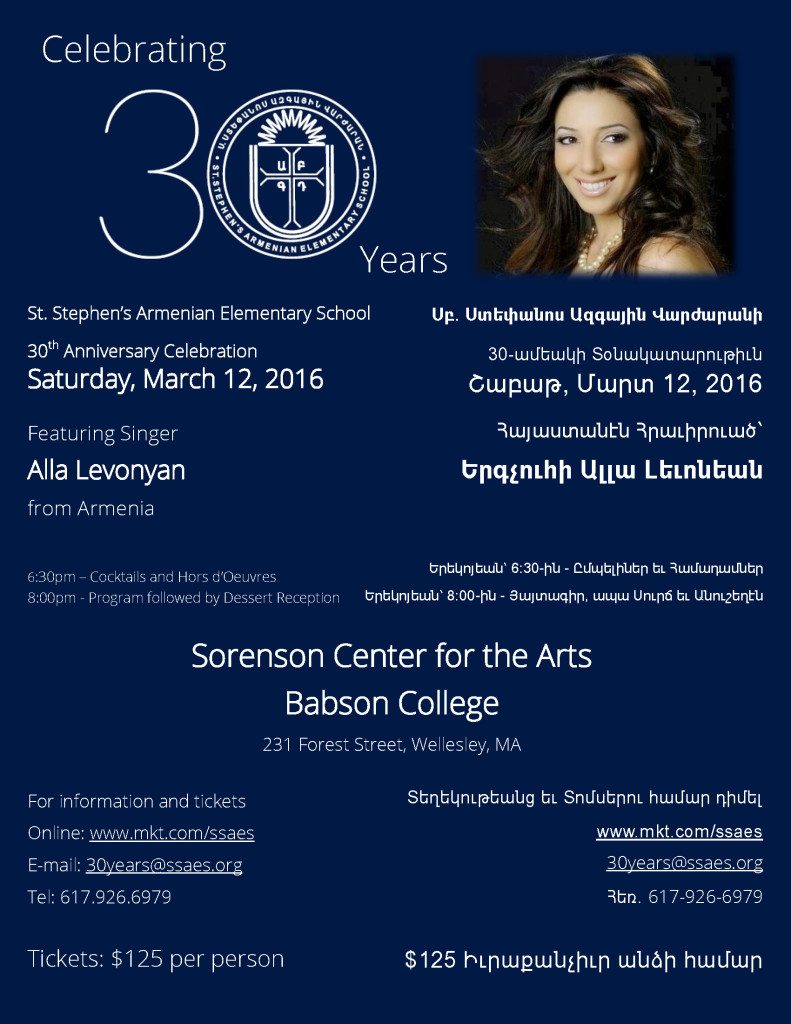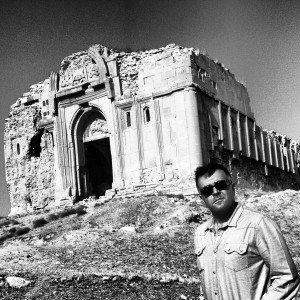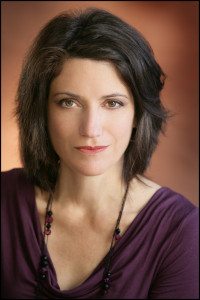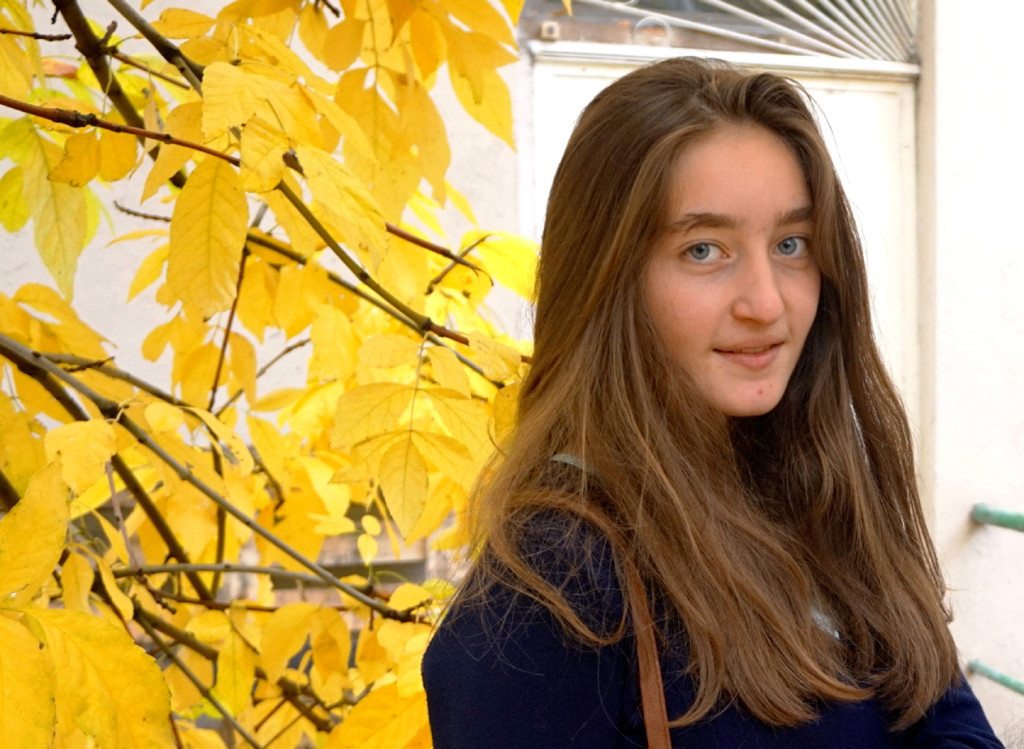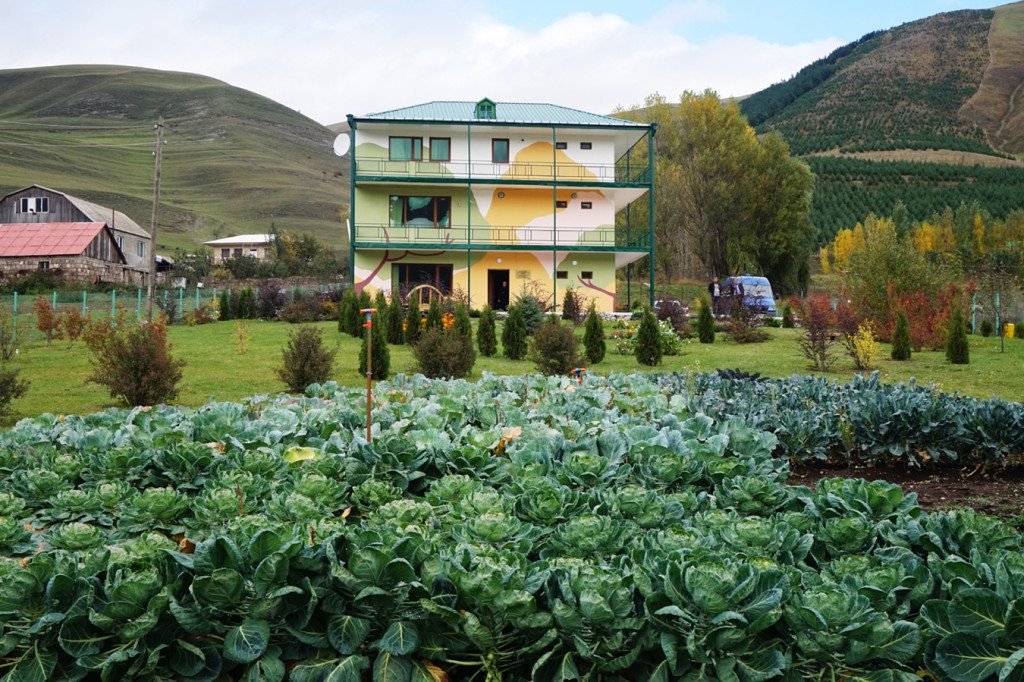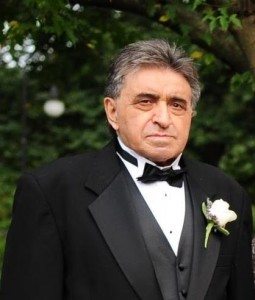MIDDLEBURY, Vt.—On any given day, you’ll find Pearl Bargamian Teague and her family working a farmers’ market in this Green Mountain State.
![]()
Pearl Bargamian Teague and husband Denis man their own table of Armenian breads and pastries at different venues in Vermont.
The focus is not necessarily on vegetables but home-baked Armenian goods that tempt the Vermont palate.
They call their venture “Storytime Foods.” There’s no chef, no gourmet, not even a cook. Hye hopes keep their choregs and baklavas reaching for the sky.
When he’s not on tour, author Chris Bohjalian will ride by on his bike, stop, and pick out his allotment of goodies. Life is good for Armenians living in Vermont.
“We’ve got something for you whether you’re on the move or settling in for a traditional Armenian meal,” says Pearl. “We think of ourselves as Armenian foodsmiths. Each day I thank God for such gifts as patience and perseverance.”
It’s been a work in progress the past few years for this family. Pearl gave up a comfortable life in Lowell, Mass., to settle for the back hills of Vermont. Tired of the corporate world, where she worked as a CPA and controller, on came a career change few would chance.
![]()
Joining their parents with a table of their own are daughters Talin and Caroline Teague.
Not that she abandoned it altogether, but food for thought became food for profit. Securing a home bakery license and the blessings of her attorney husband Denis, she simply took the plunge. That was five years ago and now she’s part of the landscape.
As the business grows, so does the commercial kitchen market concept she entertains. The Teagues sell retail at a number of farmers’ markets, as well as wholesale to local stores like Middlebury Natural Foods Coop, eventually eyeing such mega-markets as Hannaford’s. The superstore has an area where the shelves are stocked with Vermont-made products.
The primary focus for wholesale is choreg loaves filled and baked with fresh-cut fruits. Readers can check out the website at www.storytimefoods.com.
The children are just as involved, with Denis Jr. (Popeye), 19; Talin, 14; and Caroline, 11. They have their own table in conjunction with their parents, making it one perfect family affair.
It’s a move that many professionals might like to make but do not dare in this often fast and furious world, particularly with three kids in the nest. Oh, yes, there’s even an item called a bird’s nest made with phyllo dough, nuts, and honey.
Because vendor spaces at farmers’ markets are coveted and not easy to obtain, Pearl started out selling her goods as a “fill-in” vendor. From her first plunge came a $20 profit. That amount doubled with the next opening. After gaining some stature and a reputation, she’s been selling out the week with loyal customer bases at every venue.
In a society where too many people quit looking for work when they find a job, here’s one family that pursued a fairytale of its own. If nothing else, the children are learning the value of a working dollar and how it earns you income.
Though she still works part-time as a financial consultant in the healthcare industry, it remains many a sleepless night for Pearl to meet the demand. A modest greenhouse was added to their home to produce the many home-grown ingredients. The stuffed breads are a grabber—everything from strawberry, apple, cheese, and pear/lemon.
“I came to Vermont for its friendly, unhurried tempo and pristine natural beauty,” she points out. “Strangers help strangers during a hurricane or any other disaster. I feel right at home with the others here.”
In the process, the Merrimack Valley community lost one of his fervent activists. Pearl chaired the Armenian National Committee of Merrimack Valley; involved herself in Anti-Defamation League activities against the genocide; served the ARS and ARF with equal zest; and was active with her children at St. Gregory Church.
Since moving to Vermont, Pearl has turned into an Armenian catalyst, as suspected. She had no intention of leaving her identity behind—only to create new inroads.
![]()
Armenian choreg rates high among the favorite items.
“The Armenian community here is smaller than I was ever accustomed to serving,” she confirmed. “I attribute my success to the Armenian origins of my food recipes. Word got around through the farmers’ markets and my ethnic community began to take notice. Many of my Armenian friends do special orders for cultural and social events in and around Burlington.”
Storytime Foods was a prime centerpiece for an event at Champlain College, where author Dana Walrath presented her book Water on Stone about her grandmother’s experiences during the Armenian Genocide. A live Armenian band complemented the moment. More than 100 folks attended, most of them non-Armenians.
“I believe Armenian communities are going to hear more about what we’re doing here in Vermont,” she feels. “It reminds me very much of my childhood days growing up in North Providence, where the neighborhoods were so closely knit.”
There seems to be no rest for the weary in Pearl’s case. Much as she’d like to live in a thriving Armenian community, she’s now bringing the community to her or meeting it halfway. For the 100th anniversary commemoration, she woke her children up at 3 a.m. for the ride to New York City just so the Teagues could be counted among the masses.
In front of her Middlebury home, there’s all the inspiration she really needs. It’s a monument to the Widow Anne story (known as the Mother of the Green Mountain Boys) for the care and assistance to the rebelling patriots during the American Revolution.
Her biography describes a singularly resolute woman who was not deterred by her many difficulties—problems that would have broken a lesser woman.
Bohjalian lives within proximity in Lincoln. The two have met on occasion, whether at an event or a market. He’s usually tempted by one of Pearl’s cheese boregs.
“The Armenian Cause subtly underlies Storytime Foods,” Pearl points out. “During the Centennial, many a conversation would take place at my vendors’ tables of the attempted decimation of the Armenian people. Most people I meet are highly educated on genocide issues. If they lack understanding, we supply it amply. Educating or reminding others about the Armenian Cause is an obligation which should never escape us.”
On the horizon, there’s a rainbow in Pearl’s sky. She wants to put technology to work inside her kitchen while constantly expanding her footprint. Recently, she entered the New York market in Albany en route to Manhattan.
“The business is on a growth trajectory,” she notes. “Our potential is unlimited. It’s my ambition to replace ketchup on the American kitchen table with our most popular spread,
mouhamara, a hot, red pepper dip we make from scratch. If readers cannot find my products on their shelves, tell the grocers to get with the times.”
